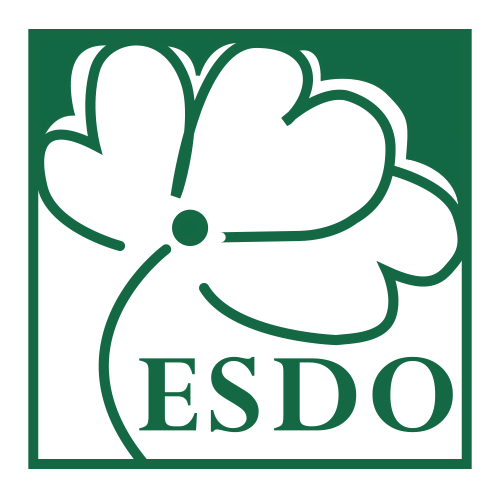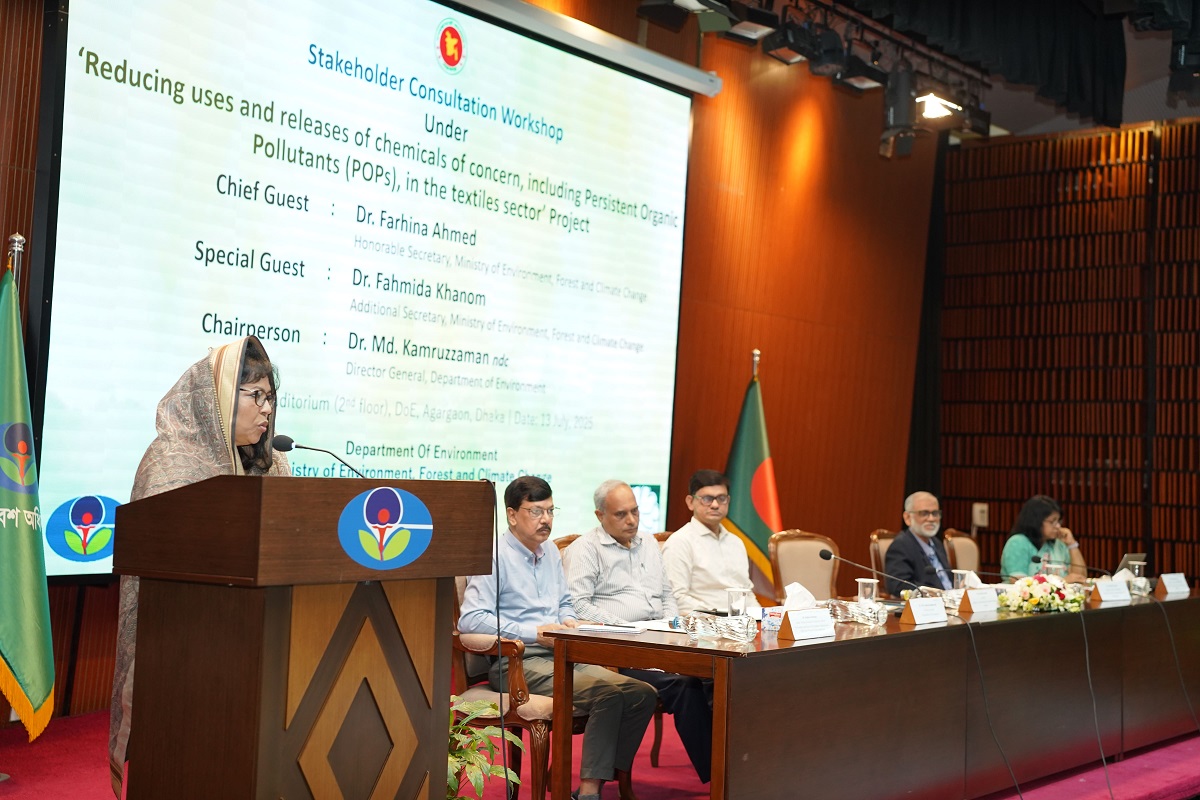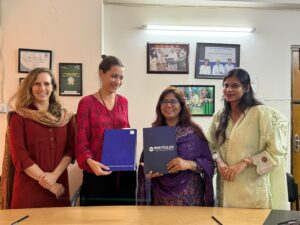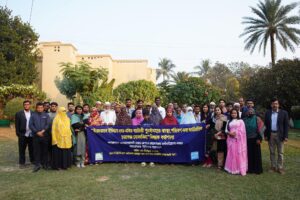Department of Environment (DoE), Bangladesh, in collaboration with the Environment and Social Development Organization (ESDO), the Basel Stockholm Convention Regional Centre – South East Asia (BSCRC-SEA), and the Natural Resources Defense Council (NRDC, USA), successfully organized the National Stakeholder Consultation Workshop on “Reducing Uses and Releases of Chemicals of Concern (CoCs), including Persistent Organic Pollutants (POPs), in the Textile Sector.” The event, held at the DoE Auditorium in Agargaon, Dhaka, brought together key stakeholders to discuss sustainable chemical management in Bangladesh’s textile industry.
Background and Objectives
The workshop is part of a five-year regional project (2022–2027), funded by the Global Environment Facility (GEF) and UNEP, aimed at reducing hazardous chemical use in the textile sectors of Bangladesh, Indonesia, Pakistan, and Vietnam. Implemented by the Department of Environment (DoE) with support from BSCRC-SEA and ESDO, the initiative seeks to promote safer chemical alternatives, improve industry practices, and transition toward a non-toxic, circular textile economy.
The consultation aimed to raise awareness about the risks of CoCs and POPs, facilitate multi-stakeholder discussions, identify policy and regulatory gaps, and explore green alternatives for textile wet processing. A key outcome was the proposal to form a National Working Group (NWG) under the DoE to ensure long-term project sustainability.
Key Highlights
The event was graced by Dr. Farhina Ahmed, Secretary, MoEFCC, as the Chief Guest, who emphasized the government’s commitment to sustainable industrial growth. Dr. Fahmida Khanom, Additional Secretary, MoEFCC, reinforced the need for stronger regulations and compliance. Dr. Md. Kamruzzaman, Director General, DoE, chaired the session, highlighting the importance of collaboration among policymakers, industry leaders, and environmental experts.
Dr. Mahfuzul Haque, National Project Coordinator, presented ongoing efforts and future strategies to minimize hazardous chemical use in textiles.
Workshop Approach
The consultation featured plenary presentations from DoE, ESDO, NRDC, and BSCRC-SEA, alongside video messages from international experts. Participants engaged in thematic group discussions, focusing on chemical risks, safer alternatives, policy gaps, and circular economy strategies. Each group presented actionable recommendations, fostering a collaborative approach to chemical safety.
Participants and Expected Outcomes
The workshop saw participation from government bodies (MoEFCC, DoE, DIFE, MOLE), industry representatives (BGMEA, BKMEA, brands, buyers, chemical suppliers), academia, media, and civil society (ILO, BILS). Key outcomes included:
- Increased awareness of CoCs and POPs risks in textiles.
- Identification of gaps in chemical management policies.
- Formation of a National Working Group (NWG) to drive long-term change.
- Actionable recommendations for greener textile production.
Moving Forward
This consultation marks a critical step in Bangladesh’s journey toward a sustainable textile industry. By fostering policy reforms, industry accountability, and green innovation, the project aims to reduce environmental and health risks while maintaining global competitiveness.



